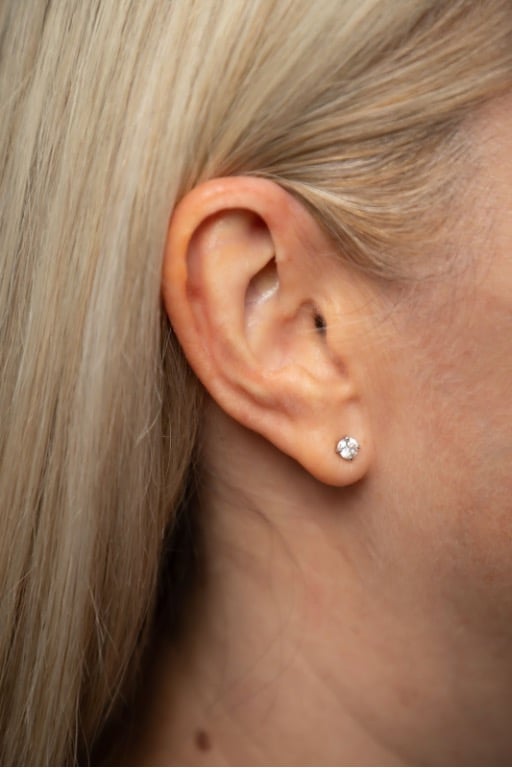Earwax impaction can contribute to many conditions that impact on your overall ear health. Keeping your ears free from wax blockages may help to prevent infections such as swimmer’s ear, or worsening of tinnitus (ringing in the ears), vertigo and balance issues, amongst others. If you use hearing aids or ear buds, you may be at a higher risk of ear wax related issues. Here are some of the issues and ear conditions that our patients may present with in our clinic
Swimmer’s Ear
Water becoming trapped inside of the ear canal due to wax build up can cause swimmer’s ear. A build-up of bacteria and moisture in the outer ear canal can cause an infection which can lead to inflammation, pain and discharge.
Discover more about Swimmer’s Ear, including its symptoms, treatment and prevention.
Ear Wax and Vertigo
Your ears play an essential role in maintaining your balance. If your ears are blocked, this can cause dizziness and a loss of balance, otherwise known as vertigo. The elderly can be particularly susceptible to vertigo if they use hearing aids and do not maintain aural hygiene and clean their hearing aids regularly.

Ear Wax and Tinnitus
Tinnitus is the sensation of experiencing ‘phantom noises’ in one or both ears, which may sound like ringing, buzzing and clicking. It can indicate damage to the ear drum but can also be caused by temporary exposure to loud noises (such as after a concert), middle ear infections, dental and jaw problems and excessive ear wax. Although ear wax removal may not fully resolve your tinnitus, excessive ear wax may be worsening the symptoms.
Discover more about tinnitus, including its symptoms, treatment and prevention.
Ear wax and ear infections
Ears are naturally self-cleaning. External conditions, and a failure of this self-cleaning mechanism, can cause ear wax to build up which in some instances, can lead to infection. Symptoms of an infection related to ear wax blockages can include a feeling of fullness in the ear, pain/earache , ringing (tinnitus) and dizziness amongst other symptoms.
Discover more about ear infections, including their symptoms, treatment and prevention.
Ear wax and hearing
Ear wax plays an important role in the ear canal. It helps to clean, moisturise and lubricate the ear canal. However, excessive ear wax can cause uncomfortable symptoms. If ear wax becomes hard and causes a blockage, it may impact on your hearing.
Discover more about the link between ear wax and hearing.
Ear wax and hearing aids
For hearing aid users, keeping the device and the ear as clean as possible is essential to protecting your ear from impacted ear wax. If excessive ear wax becomes trapped behind your hearing aid, bacteria may build up. This bacteria may cause infections, vertigo or swimmer’s ear.
Discover more about the impact of hearing aids on ear wax and how to keep your ears clean and healthy.
Ear wax and ear buds
Inner ear head phones or earphones can contribute to wax blockages and impaction. Wearing these ear buds every day can cause moisture and ear wax to be pushed down into the canal, leading to a blockage which can lead to infection. It is important to keep both your ear buds and your ears as clean as possible to prevent this.
Discover more about the impact of ear buds on ear wax and how to keep your ears clean and healthy.
Why choose Earworx?
Award-winning Earworx are Australia’s ear wax cleaning professionals. We specialise in micro-suction and curettage. This is a highly effective and safe method for the removal of excess earwax. This procedure is endorsed by Ear Nose and Throat specialists. At Earworx, this procedure is performed by qualified and highly trained Registered Nurses who help to make it a comfortable procedure and appointment.
More Information
If you have questions or concerns about your ear health, feel free to contact the friendly Earworx team. We’re more than happy to help answer your questions and to assist you in relieving your ears of uncomfortable, wax-related symptoms.
To book an appointment, please contact the closest clinic to you.
